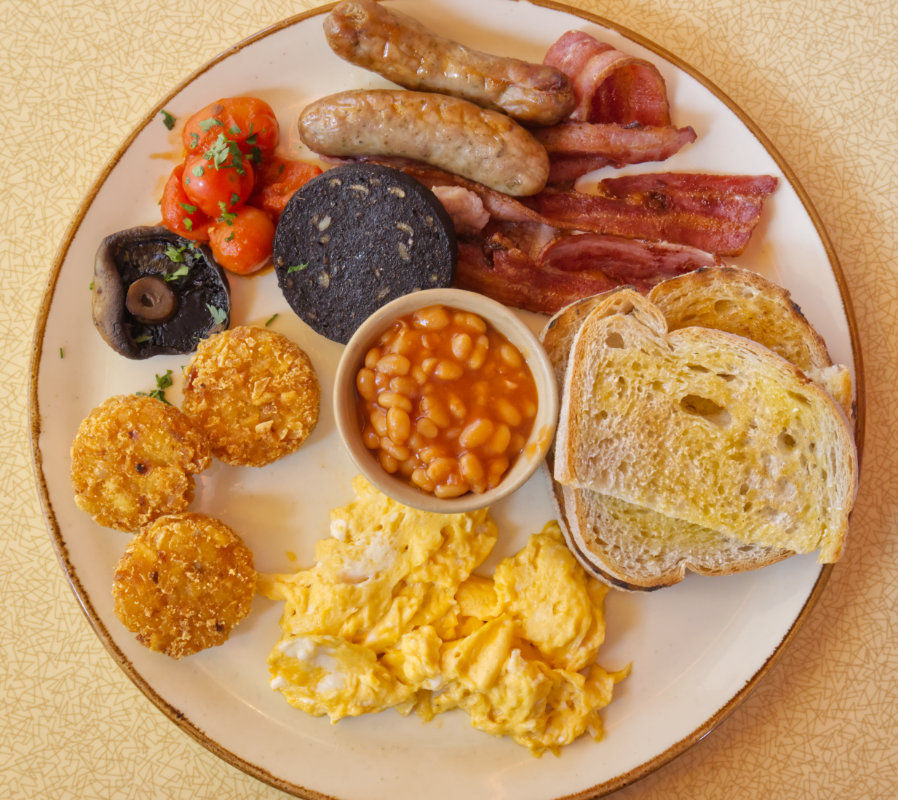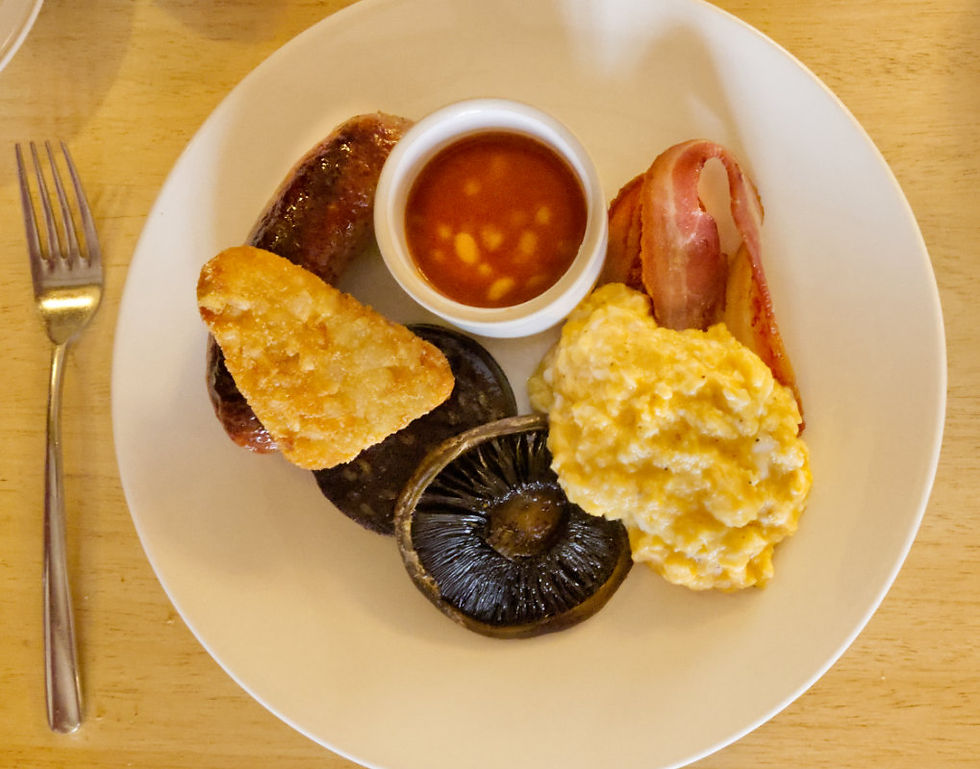Two Full Englishes
- Gethin Thomas

- Aug 11, 2025
- 3 min read
A highlight of any stay away for us is breakfast, something we do not normally do on a routine day. Even one night away, therefore, necessitates more than one Full English. One on the way and one the morning after. Hence, Two Full Englishes.
The word English is an adjective, a noun and now also a verb. As an adjective it describes the language or the people, as in The English Language, or The English Man, and as a noun it can stand alone, as in I speak English (the language). As a verb, to anglicise was traditionally used, as in to make something more English, but increasingly things can be described as englished, and people have taken to englishing things. In fact its ability to almost instantaneously adapt, morph and adopt words itself, is one of the reasons that English has englished the modern world.
The word English was traditionally always used interchangeably as a singular and a plural with no added "es". The new plural form only emerged as recently as the late 20th century, in academia to describe the study of the language and its differences in a world context, as in "World Englishes", and in recent years the "Full English", used to describe a meal has taken on a life of its own to the point that we commonly now use Full Englishes and even the word "breakfasses" can commonly be heard on TV. Breakfast, the ancient first meal of the day that broke a fast, has taken on a new lease of life.
I would not be at all surprised if "The Full English" was not soon a study in academia on the same par as "World Englishes".
In any case, I thought I would show you two full englishes I had this week, something I would not normally do as this is not a food blog and I generally, as a rule, abhor people photographing their food in restaurants. But rules are for breaking so here we go.
My two breakfasses were a contrasting roadside diner one, and a gastropub one, but as you will notice, apart from portion size, they don't look that different. Links to each included.

Many of the ingredients of a full breakfast have long histories, but "large cooked breakfasts do not figure in English life and letters until the 19th century, when they appeared with dramatic suddenness". Wikipedia
The fried breakfast emerged as a popular staple in the Victorian era, and almost at the same time, the ingredients list started to become fixed due to the popular emerging cookery books of the time. The meal evolved out of the traditional country house breakfasts of the aristocracy which tended to be a conglomeration of items readily available from a country estate. The newly emerging middle classes may have been emulating their "betters" but it was also considered to be a quick way of preparing a nourishing meal before setting off to work, something their betters didn't have to worry about, either cooking or working.
It reached its peak by the Edwardian era when it collapsed in popularity due to a shortage of ingredients during and after the First World War. It was only by the later 1950s that modern technological developments in food preparation and storage saw it become a staple of the working classes.
Of course the British class system being what it is, this means that it is now considered to be working class, which means that the "betters" look down their noses at it. Emulating never goes the other way, not when you can have smashed avocado on toast or a granola bowl with oat milk.
A common traditional English breakfast typically includes back bacon, sausages (usually pork), eggs (fried, poached or scrambled), fried or grilled tomatoes, fried mushrooms, black pudding, baked beans, and toast or fried bread. Wikipedia

A poll by YouGov in 2017 found the following to be on more than 50% of 'ideal' Full English breakfasts: bacon; sausage; beans; bread (either toast or fried); eggs (fried, scrambled or poached); hash browns; mushrooms (fried or grilled); and tomatoes (fried, grilled or tinned). Black pudding was the least popular of the traditional ingredients, chosen 35% of the time,
Thankfully, the smaller portions at the gastropub, on the morning after, enabled a mid morning coffee stop which included Devon Apple Cake and clotted cream.




Comments